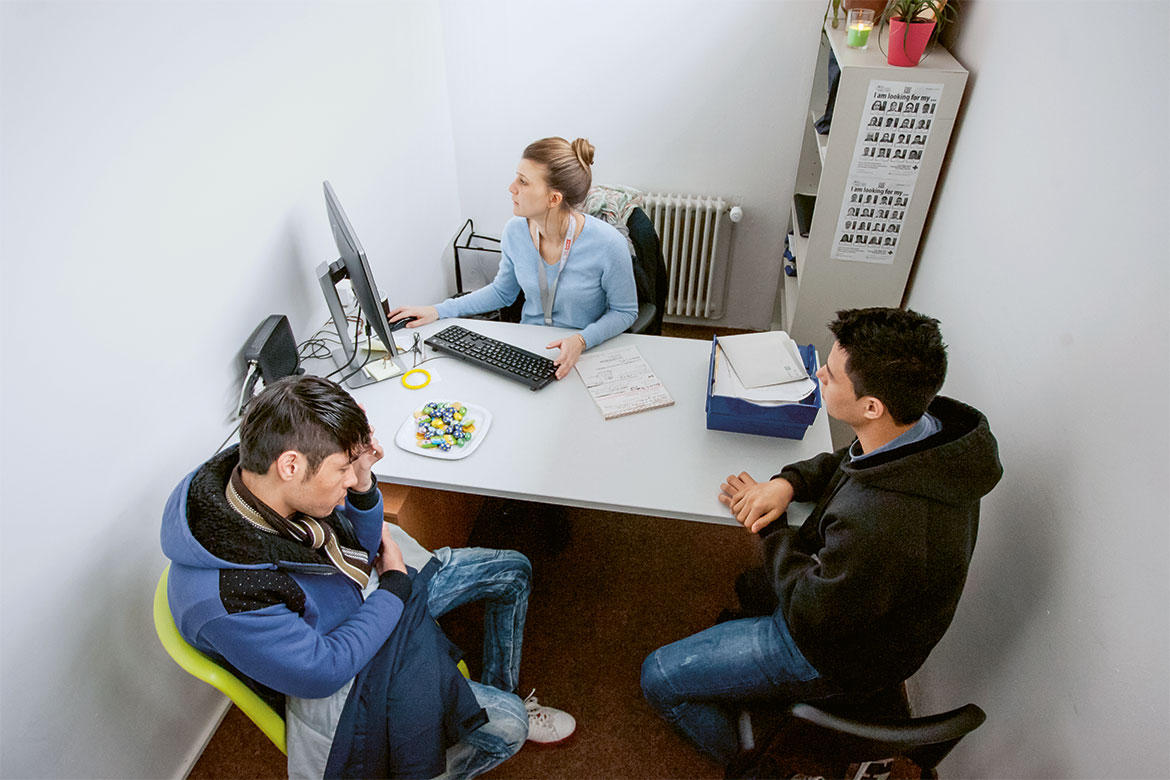Asylum: how the system decides
Credible or not? Deciding whether to believe asylum seekers is sometimes down to the operational socialisation of the authorities.

Ob die Behörden den Asylbewerbern glauben, hat viel mit der Kultur in den Ämtern zu tun. | Image: Keystone/Aram Karim
Most negative asylum decisions in Switzerland are explained by a supposed ‘lack of credibility’ on the part of the applicants. It is striking that this quota has remained constant for years, regardless of the land of origin of asylum seekers, or the number of overall applicants. At the University of Bern, a research team led by the social anthropologist Julia Eckert has been investigating this phenomenon. They have discovered that ‘institutional habits’ play a decisive role in asylum proceedings. “This is a specific way of thinking, feeling, perceiving and acting that you develop through a process of socialisation at an institution”, explains Laura Affolter, who has just completed her doctoral thesis on the topic. At the Swiss State Secretariat for Migration (SEM), where Affolter conducted research for two years, this translates into “a culture of mistrust. Having a critical approach to asylum seekers is perceived as professionalism”. Employees at the Secretariat interiorise specific behavioural patterns and operational objectives, independent of their personal value systems. For example, certain questioning techniques are employed that can mean asylum seekers become entangled in contradictions.
Affolter believes that the decisive importance given to ‘credibility’ in asylum proceedings stems primarily from the difficulty that arises from any attempt to lodge an appeal against a supposed lack of it. “By questioning their credibility, you shift the burden of a rejection onto the asylum seekers themselves. It essentially makes them personally responsible for any decision made against them”, says Affolter.
The main goal of this project was to gain an understanding of the decision-making processes. So the researchers haven’t formulated any concrete recommendations for action. “But we are ready and willing to discuss our findings with the authorities”, says Julia Eckert.
Astrid Tomczak




